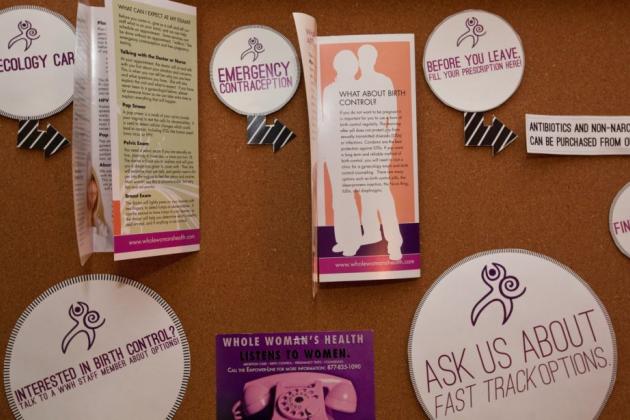
Pill will be given to women with a valid healthcare card, a big step for region that previously had some of Canada’s tightest restrictions on reproductive rights
Source: Julien Gignac | The Guardian
New Brunswick has become the first province in Canada to distribute an abortion pill for free, in a major step for a region that previously had one of the country’s strictest policies on women’s reproductive rights.
The provincial health minister, Victor Boudreau, unveiled the policy on Tuesday, announcing that women will be entitled to receive Mifegymiso without payment if they have a valid healthcare card.
“By making Mifegymiso available free of charge for all New Brunswick women, our government is ensuring that financial barriers do not stand in the way of a woman’s right to choose,” said Boudreau in a press release.
Access to publicly funded abortion in New Brunswick was restricted from the 1980s until 2015. During that period, Medicare – the country’s national heath system – would only cover an abortion at one of the province’s two approved facilities if two doctors had certified that it was necessary for medical reasons.
“It was such a strict criteria that it became very difficult to get a publicly-funded abortion,” said Beth Lyons, executive director of New Brunswick Women’s Council.
“The New Brunswick government’s offer to cover the cost of Mifegymiso is a tremendous step forward in making sure there is a real choice for women and trans people seeking abortion care,” said Sandeep Prasad, executive director of Action Canada for Sexual Health and Rights. “We were both pleased and surprised, surprised because New Brunswick is ahead of the pack, so to speak.”
Pharmacists will not be allowed to directly dispense Mifegymiso to patients: they must get a prescription from a doctor. To do that, physicians must complete training and be registered to work with the drugs.
“We do think that we’re going to see this improve access for women and trans folks in rural areas, and this could also be particularly helpful for those living in violent situations,” said Lyons. “Having those choices and being able to make the decision that’s best for them, based on their contexts, might ensure that women are more safe or their anonymity is preserved.”